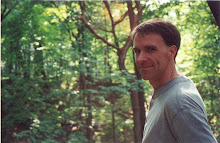[Granary grave]
Boston certainly was a very very modern city, a fast-paced East Coast town with an edge. But it was also "very very" historical, with its winding colonial lanes , old buildings, and curmudgeonly, irascible people. Boston virtually drips with history.
Boston's first resident was a hermit who lived alone on Beacon Hill. The Puritans who settled on the hill after him were no less cranky about having neighbors. They hanged a woman on the Common for "promoting Quaker beliefs." She's buried in Boston's first cemetery, the Granary, as are Mother Goose and Benjamin Franklin's parents. This is the first stop on the famous Freedom Trail detailing Boston's history and conflating it with that of the country as a whole.
But I was surprised how many things along the Freedom Trail and Black Heritage Trail conflicted with the myths handed down about them. Massachusetts was the first state to outlaw slavery but also the first to send slave ships to Africa. Paul Revere's famous warning that the British were coming "by sea" actually meant that they were coming via the Charles River, and he never completed the ride named for him—though two other riders did. (History here might get misremembered but never forgotten. Near the end of the Freedom Trail, in Copp's Hill Burying Ground, I found fresh red flowers lain atop a gravestone from 1767.) Maybe our murky understanding of our birth and history reflects our murky notion of what constitutes our community, adding to the sense that Hopperesque isolation is uniquely American.
20081204
82 Boston: History Lesson
Subscribe to:
Post Comments (Atom)




No comments:
Post a Comment